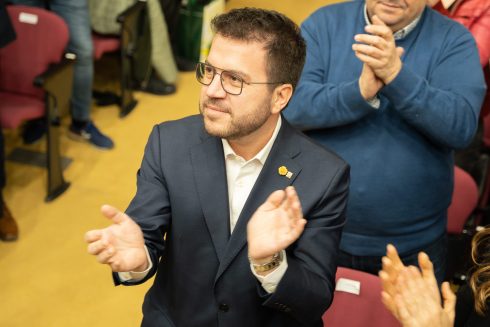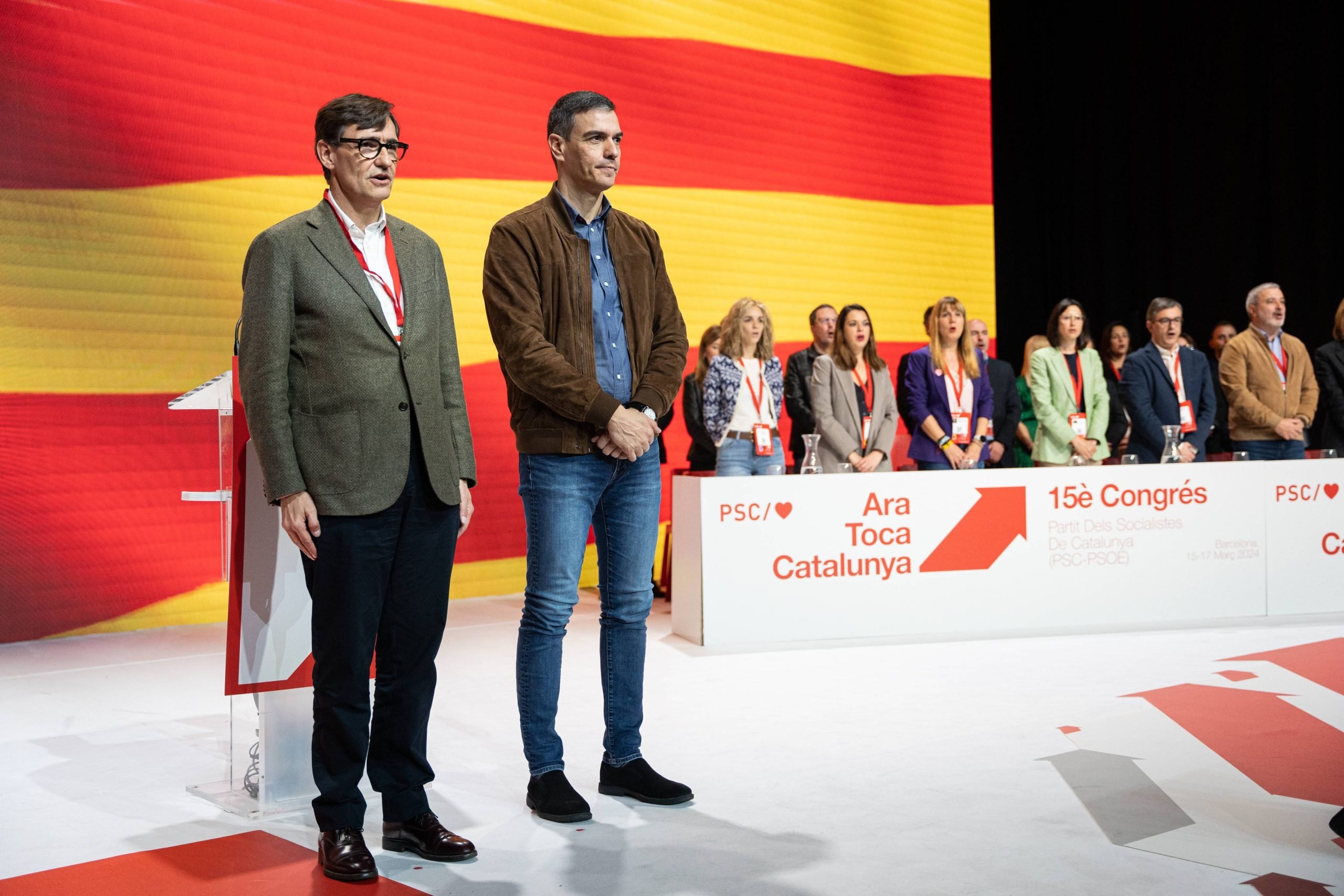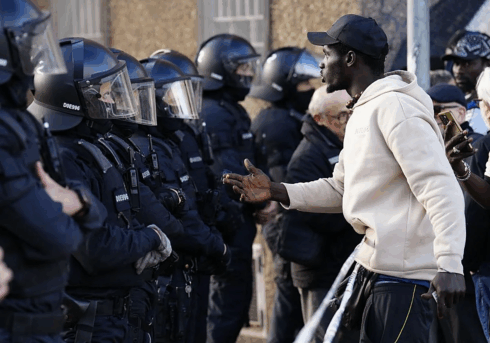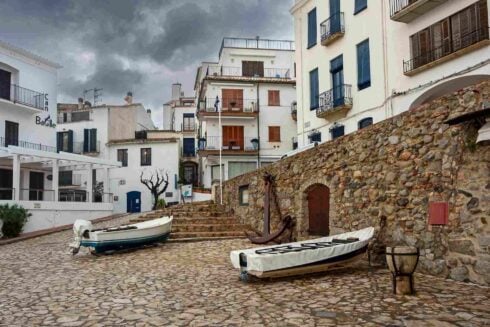CATALUNYA’S regional government is set to be led by a party opposed to independence for the first time in over a decade after separatist parties lost their majority in Sunday’s local election.
The Catalan Socialist Party (PSC) – the regional branch of Prime Minister Pedro Sanchez’s PSOE Socialists – won the election with 42 seats and 28% of the vote following a bitter campaign that was dominated by Sanchez’s controversial amnesty law, corruption allegations against his wife, a housing crisis and the region’s longest drought on record.
Salvador Illa, a former health minister who leads the PSC, told buoyant supporters last night that victory for his pro-unity party heralded a ‘new era’ for the region following years of chaos and uncertainty since the illegal, unilateral 2017 independence referendum bid.

His party had campaigned against independence, instead vowing to focus on other issues such as infrastructure, housing and ‘neglected’ public services.
Illa, likely the next President of Catalunya, said success in the ballot was down to ‘the policies implemented by the Spanish government and its prime minister, Pedro Sanchez, to whom I send my acknowledgement and thanks’.
Sanchez will see the result as a vindication of his regional policy, including the controversial amnesty law which grants pardons to separatists who face legal action for their role in the 2017 independence push that provoked Spain’s biggest political crisis in decades, and a good sign ahead of June’s European parliament elections.
However, the PSC fell well short of the 68 seats needed to command a majority within the regional parliament – known as the Generalitat de Catalunya – and so will require the backing of other parties to form a government.

The four pro-independence parties, topped by the Junts party of former regional president-turned-fugitive Carles Puigdemont, gained 61 seats, seven short of the figure needed.
Illa may be forced to rely on the support of the left-wing pro-independence Republican Left of Catalunya (ERC), who came third with 20 MPs voted in, and the far-left Comuns Sumar alliance, who won six seats.
If an agreement cannot be found, Catalunya may be left with a hung parliament and no choice but to head to the polls again.
Incumbent Catalan President, Pere Aragones, of the left-wing ERC party, was forced to call a snap election earlier this year after opposition parties voted down his minority government’s budget proposals.
His party had been governing the region in coalition with Junts, the hardline pro-independence party led by Puigdemont, who orchestrated his campaign from abroad with the controversial amnesty law, of which he is the greatest beneficiary, yet to come into force.
Junts won 35 seats with 22% of the vote, becoming the leading pro-independence voice in parliament once again after the ERC lost 13 seats in comparison with the 2021 elections.

The party won 20 seats with 14% of the vote, but are likely to assume the role of kingmaker as the Socialists look to form a coalition that would secure power.
The conservative Partido Popular (PP), who have historically had little success in the region, became the fourth largest party in parliament after winning 15 seats, an increase of 12 since 2021.
They pipped far-right Vox, who came fifth with 11 seats after a campaign which claimed that a ‘corrupt elite’ were trying to ‘Islamify’ the region by allowing high-levels of immigration.
Ciudadanos, the centrists won the 2017 election, cemented their fall from grace by losing every single remaining seat, whilst a new party, the far-right pro-independence Alianca Catalana, entered parliament with 2 seats after acquiring 4% of the vote share.
The party campaigned on an anti-immigration ticket, with their leader Silvia Orriols claiming their aim was to ‘stop this massive and invasive migration from retrograde, misogynistic and violent cultures’.
More than 5.7 million citizens had been eligible to vote but there was disruption on polling day after the theft of copper cables brought lines on the local Rodiales train network to a standstill, leaving thousands of commuters stranded.
Click here to read more Spain News from The Olive Press.








